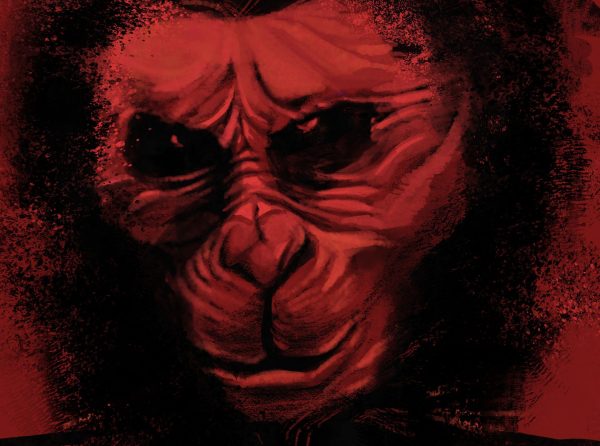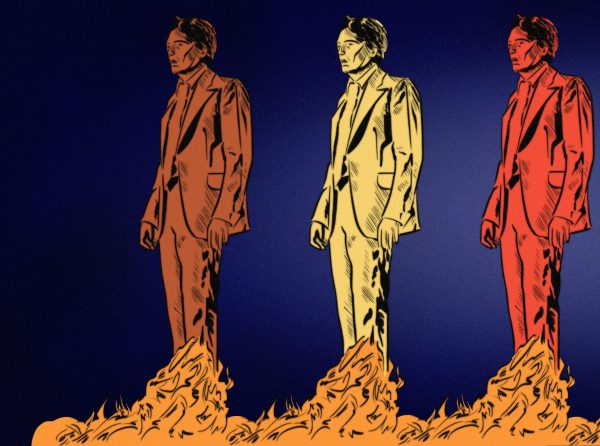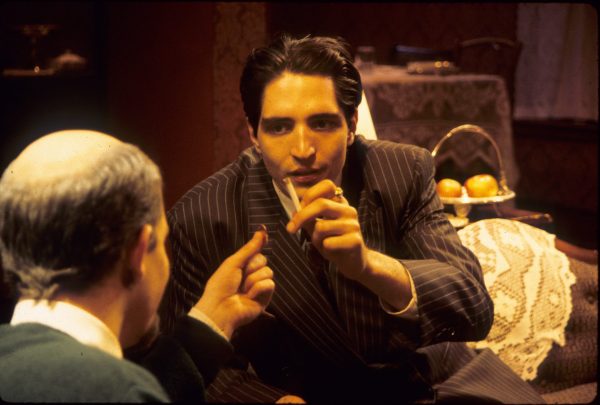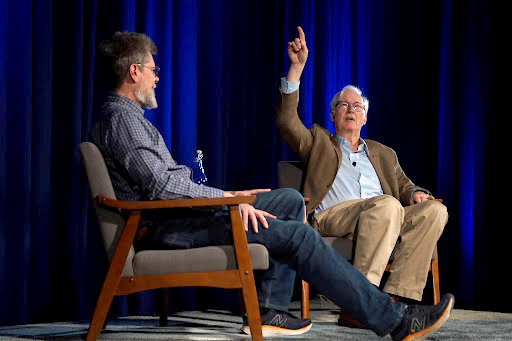‘Jackass’ and the evolution of comedy
Johnny Knoxville rose to stardom as an integral member of the wild “Jackass” crew.
For as long as anyone can remember, comedy has been an ever-evolving, boundary pushing genre with varying tastes for audiences everywhere. Over time, it has morphed from politically charged humor (such as in the films of Charlie Chaplin), to positive explorations of feminism (like “The Mary Tyler Moore Show”), almost always relying on crazy characters, plot and situations. These days, with new content being turned out by the minute and films such as the Johnny Knoxville-produced “Action Point” coming to theaters this summer, there are certain comedy franchises, like “Jackass,” that strive to stand the test of time by changing alongside the genre.
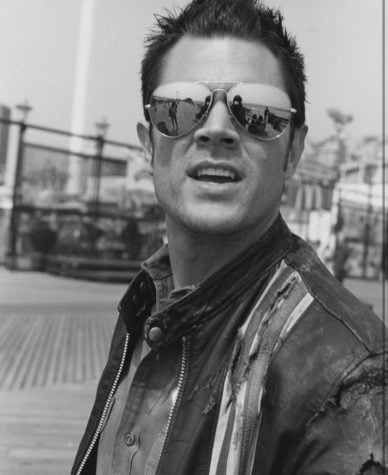
Johnny Knoxville rose to stardom as an integral member of the wild “Jackass” crew.
When comedy first began to gain popularity, it relied solely on humor and didn’t necessarily borrow any material from the outside world. All that mattered was making people laugh, rather than engaging with anything that was popular in society. However, as time went on, pop culture references and political statements were interwoven into the media to attempt to reach audiences – and younger viewers, in particular.
This is true today in mainstream media, especially given the current political climate. In just the past year there has been an overabundance of movies, television shows and late night sketches that have felt compelled to take some kind of stand on political issues, sometimes even revolving the entirety their narratives around speaking up for those who are not able to. While audiences are used to seeing ideas such as the positive exploration of feminism and women in leading roles on their screens today, this was not always the case. Back in the ‘50s and ‘60s, both “The Mary Tyler Moore Show” and “I Love Lucy” were seen as offering new and fresh viewpoints on the modern woman. For instance, in the 1952 episode of “I Love Lucy” called “Job Switching,” the husbands and wives decide to switch jobs to see how the other half lives, with predictably hilarious results. When that episode first aired, the humor it brought forth was refreshing and engaging. After future shows copied that joke time and time again, however, it lost the impact that it once had. Certain comedic tropes, such as these, pushed boundaries for what audiences considered normal and comical. But these days, seeing Lucy swap “traditional gender roles” with her husband Ricky Ricardo (Desi Arnaz) isn’t as impactful given the social changes that have taken place in American culture.
While there has always been some type of escapism within comedy, it is more prevalent today than ever before due to the current political climate. Now more than ever, audiences want to watch content solely for laughter. YouTube, the video-sharing website founded in 2005, was one of the first outlets that emerged to coincide with this escapist ideal, giving visitors to the site a chance to just laugh at whatever it was they found funny without any kinds of strings attached. And that is something that the enormously successful “Jackass” franchise has capitalized on. Like “Looney Tunes” and the wacky cartoons before it, Johnny Knoxville and his crew continue to borrow from the slapstick form and update it for the modern day escapism crowd who enjoy simplicity with their comedy. They tend to rely on the idea of laughing at someone else’s pain – such as the classic gag of someone falling down, only stretched out into hours-long productions – thereby moving away from tropes of comedy’s past while also returning to its base simplicity, all the while managing to push out “Jackass”-related content for over a decade.
“When you’re on YouTube, the amount of compilations you’ll find of people getting hurt is astounding. There will always be a market for this type of comedy if you have a site like YouTube,” said DePaul student Jeffrey Lee.
One of the things that makes the “Jackass” content stand out is that, like other comedies that are bold and groundbreaking, it has always unabashedly been itself, while knowing its audience and delivering exactly what they want. While some may find this kind of humor to be unsuitable for their tastes, the “Jackass” franchise is admirable because it is sure of what it is and it doesn’t stray away from that. Spike Jonze, a frequent collaborator of Knoxville and company and a renowned filmmaker in his own right, told the New York Times in 2010 upon the release of “Jackass 3D” that the “Jackass” style, “Has no explanation for being. It just is.”
It’s amazing that Knoxville and his team have been able to take out a camera and film whatever it is they find funny and have the world see it – an ethos that looks like it will influence “Action Point” when it’s released in June. Although, without the previous content that paved the way and broke boundaries before them, the “Jackass” crew wouldn’t have been able to put out the content that they have. Thanks to the likes of Chaplin, Lucille Ball and others, people like Knoxville are able to create work that they are passionate about, while catering to audiences who are just as excited to see their work. It shows that comedy still has the time to grow and change as the years go on – even if that means finding a fresh spin on classic slapstick tropes.






